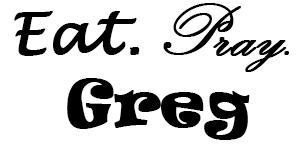I walked into the hostel kitchen to make dinner where one of my hostel mates was already stationed. We were allowed to use the flatscreen TVs there and this hippie-esque, kind of grungy gentleman had YouTube open playing a song in Spanish. It was incredibly catchy with panflutes and drums. But as I listened closer to the lyrics, I realized that it was a political ballad. Looking at the screen, it was a slide show in black and white of Salvador Allende and his supporters. The song was from the band Inti Illimani and it was called Canción del Poder Popular. Poder Popular was the socialist (read communist) party of Chile of which Allende was the leader that won the presidency in 1970. As the song continued with lyrics including “We’ll throw out the Yankee and their sinister language…” and images of people walking with hammer and sickle banners, it was incredibly surreal and made me think of the old adage that while history may not repeat itself, it does rhyme. Considering what was going on outside the fortified barricades of my hostel, it was quite the juxtaposition. All that was old was new again.
Chile was in a unique position in Latin America before I arrived. While other countries in the region were dealing with inflation, Chile, having a much better economic footing, was able to open operations of mining and rail systems in many neighboring countries. They were able to do this through the iron hand of Agusto Pinochet and the privatization of a lot of things in the country, from healthcare to transportation. However, as the fees increased and the wages stayed the same, the equivalent of a 40-cent increase for metro fares for students ignited the fires of protests the very day I arrived to the country.
It was an incredibly extraordinary experience. I had never been in a situation like this. It was very scary at times. While the line between protestor and looter got blurred, the people that were trying to ransack a pharmacy next to my hostel with the intent to burn it after, made me come up with a plan of how I would escape my 7th story room. And made me miss my Second Amendment rights. I made sure to keep my distance from any and all of the protests as I did not was to become arrested as a foreign presence. However, I was able to be out on the streets during daylight hours to see the mobilizing of the police, the military, and the protestors. I was even able to watch their handy work from my perch, getting repetitively teargassed in the process.
When Pinochet took power after the death of Allende in a CIA-supported coup in 1973, his main goal, other than maintaining power, was purging Communist influence in the country. This lead to a reign of terror where knocks on doors in the middle of the night by police would end with a lot of the summoned never returning, murdered by the state either accidentally or intentionally. It seemed that some old habits died hard as some protestors were picked up by the police, taken to undisclosed locations, and brutalized, with some not returning home. Photos of the disappeared were placed all over the city asking if they had been seen by their families.
I was dismayed that these people supposedly yearning to breathe free destroyed a lot of the city; spraying graffiti onto beautiful buildings, defiling their own cultural institutions, sacking and burning grocery stores, and making life harder for the poorest of the poor by disrupting mass transit. Businesses were looted and set ablaze, in apparently an ancient rite similar to what the natives did to the colonizing forces, while the businesses that could welded large iron fortifications to their storefronts. Before this time, Santiago was a relatively safer city in Latin America.
However, given the history of “Socialist” countries never letting a good opportunity go to waste, I felt in my bones that there were agitators well versed in the practices of anarchy and destabilization under the guise of unity and comradeship. I had been watching the Maduro regime in Venezuela killing his own people for mobilizing protests, with the coup de grâce being running over protestors with armored personel carries. Then backing up. With Pinochet long dead, now was an opportunity to add Chile as a piece to their chessboard. As I was out in the streets of Santiago, amongst the protestors, I began thinking of the now ominous refrain of Canción del Poder Popular:
Because this time it’s not about
changing a president,
it will be the people who build
a very different Chile.


No comment yet, add your voice below!